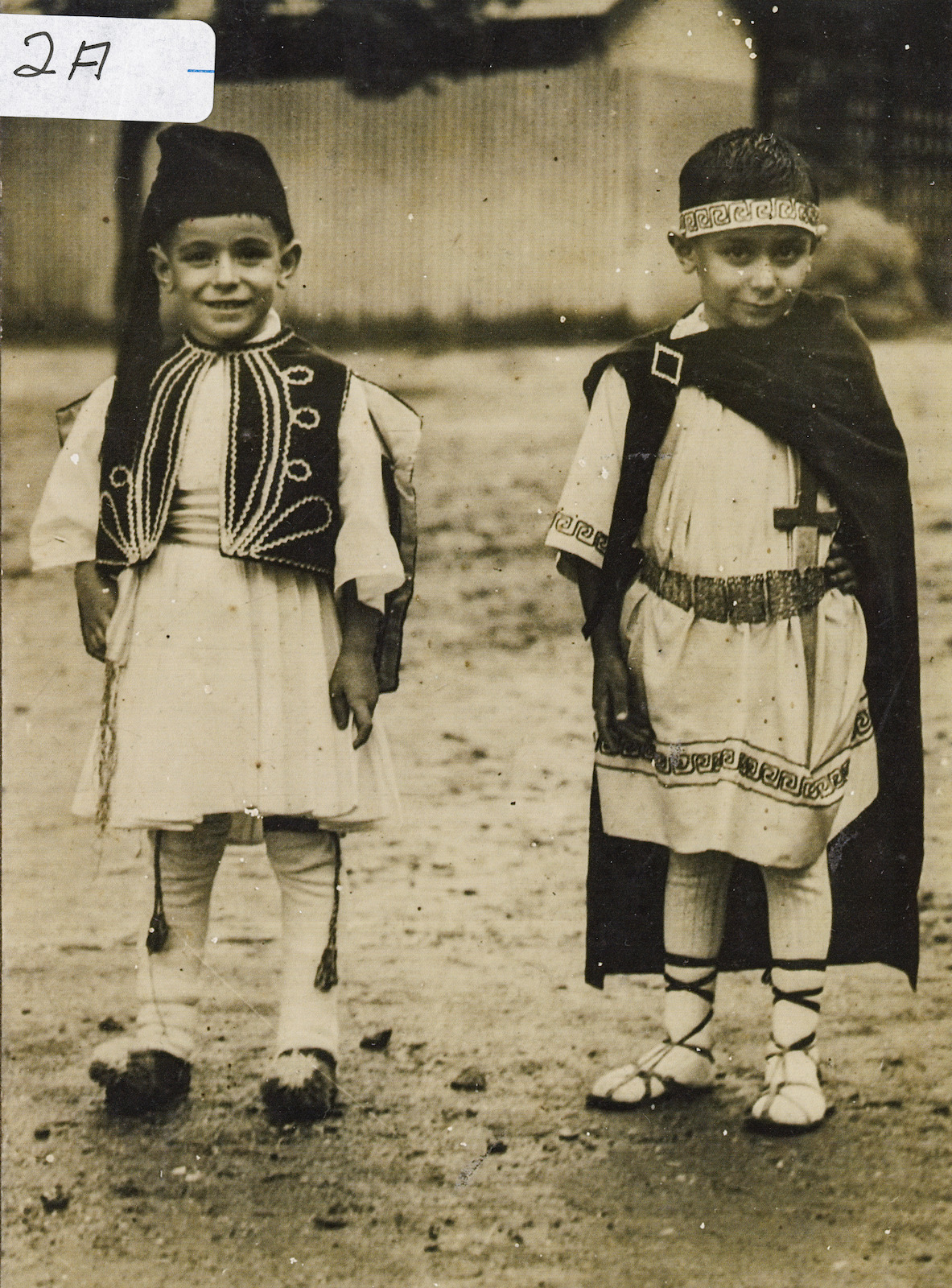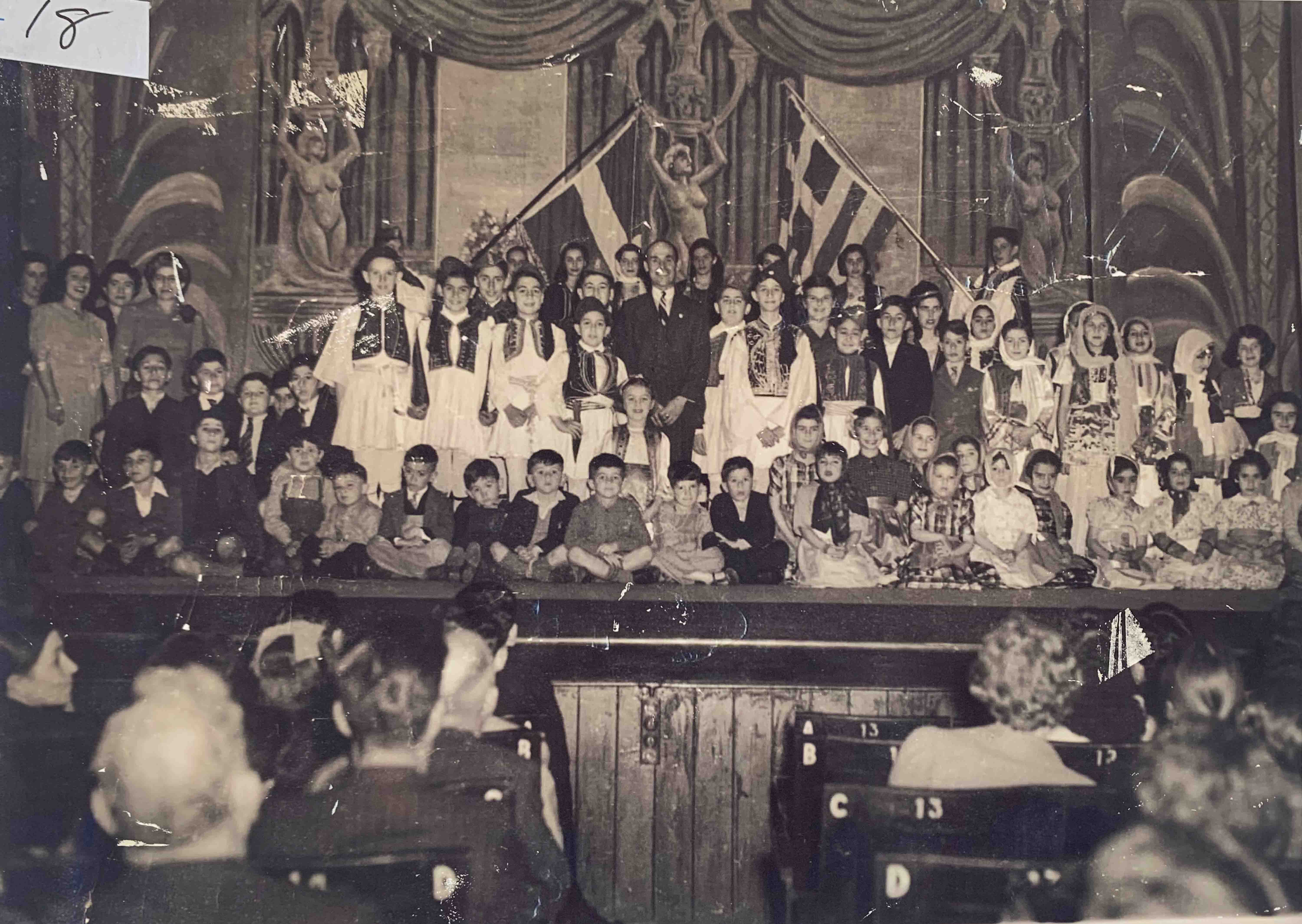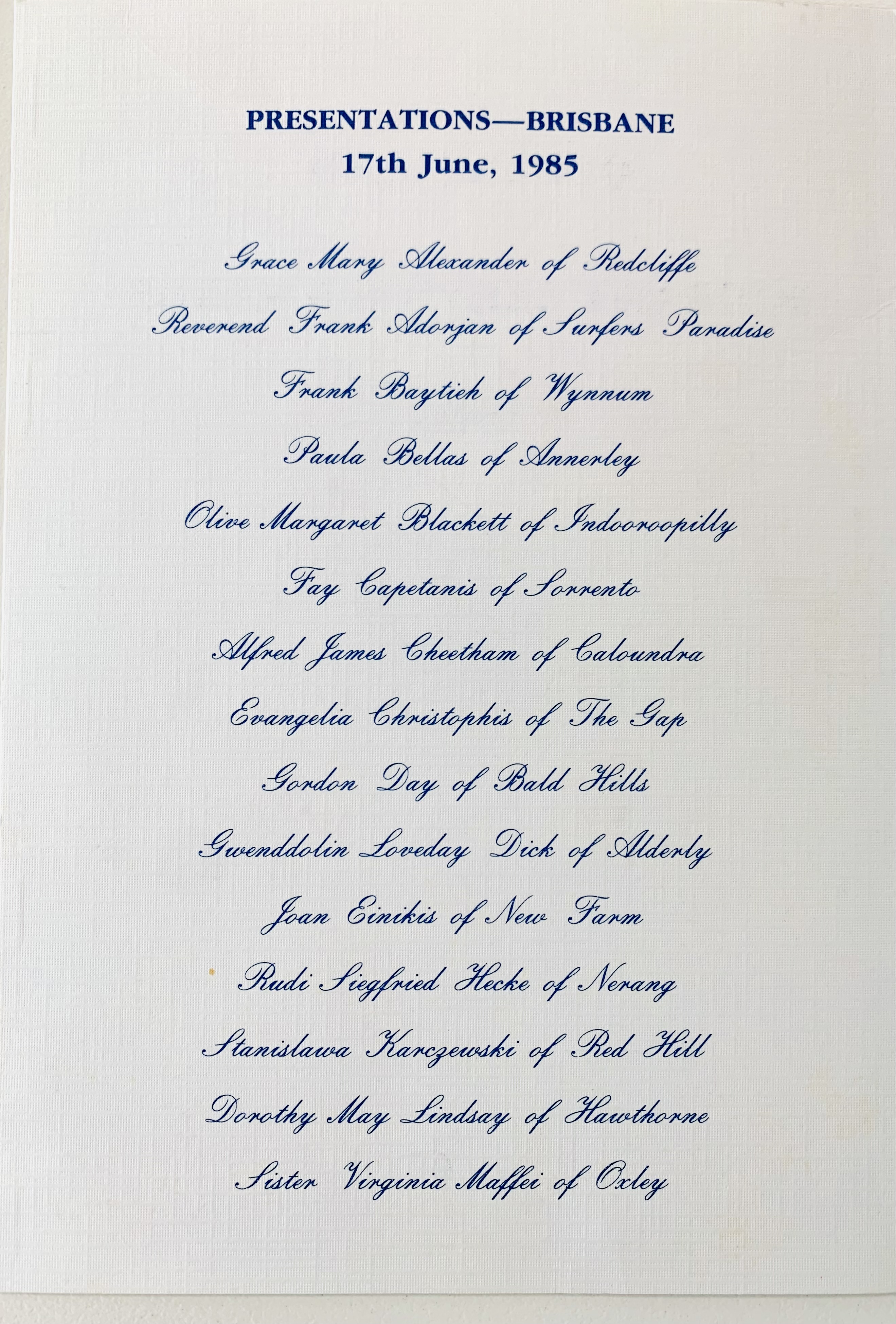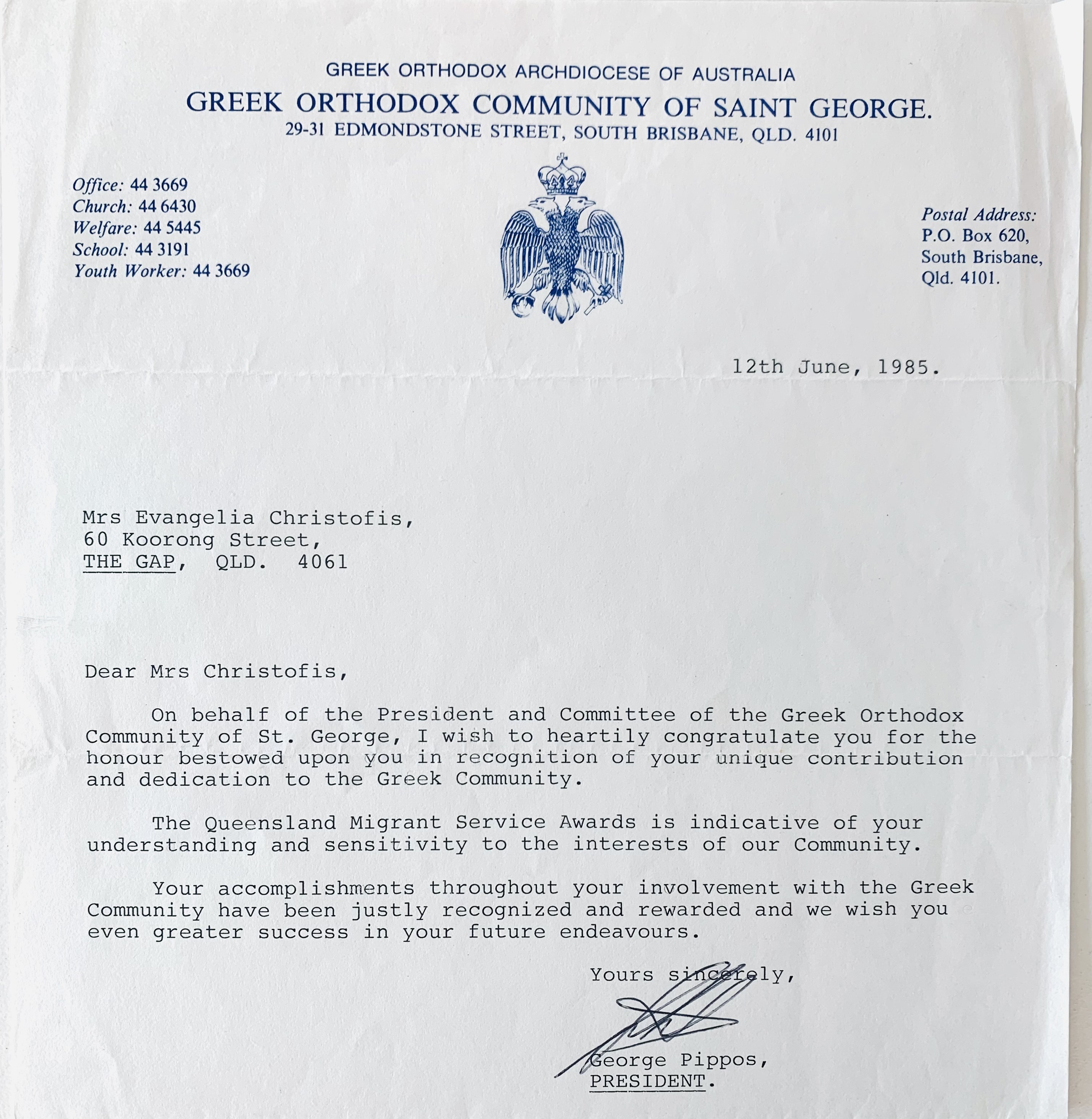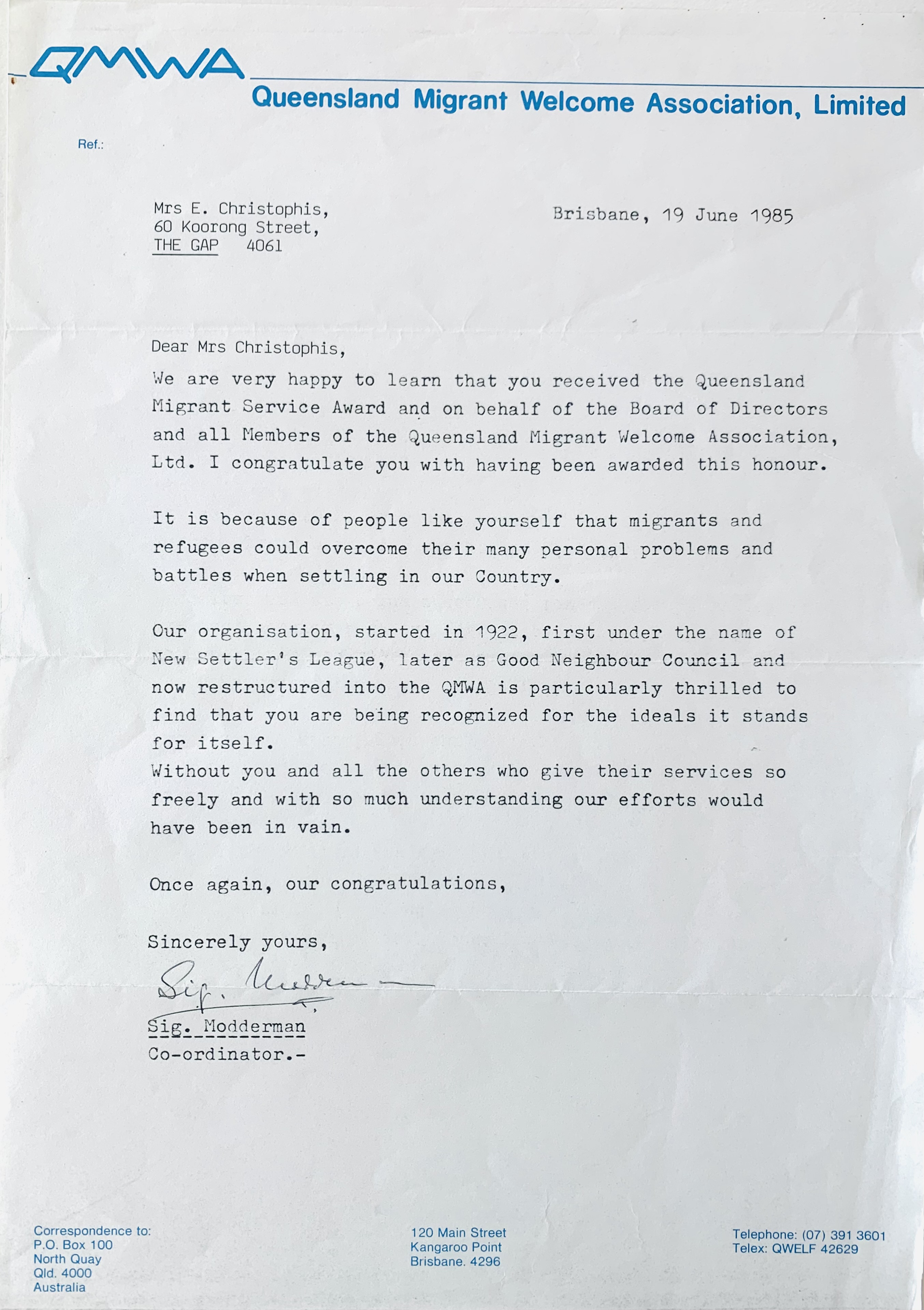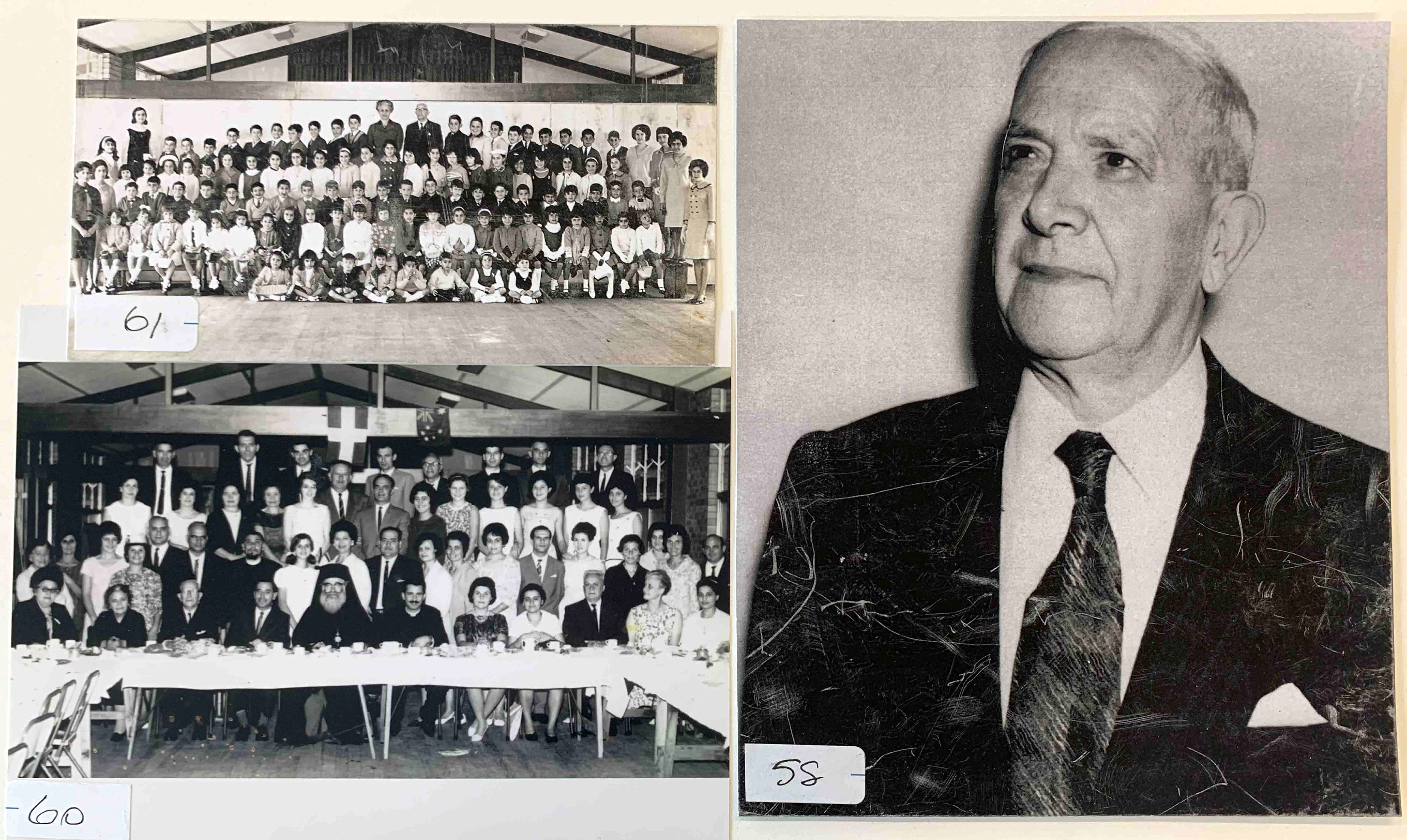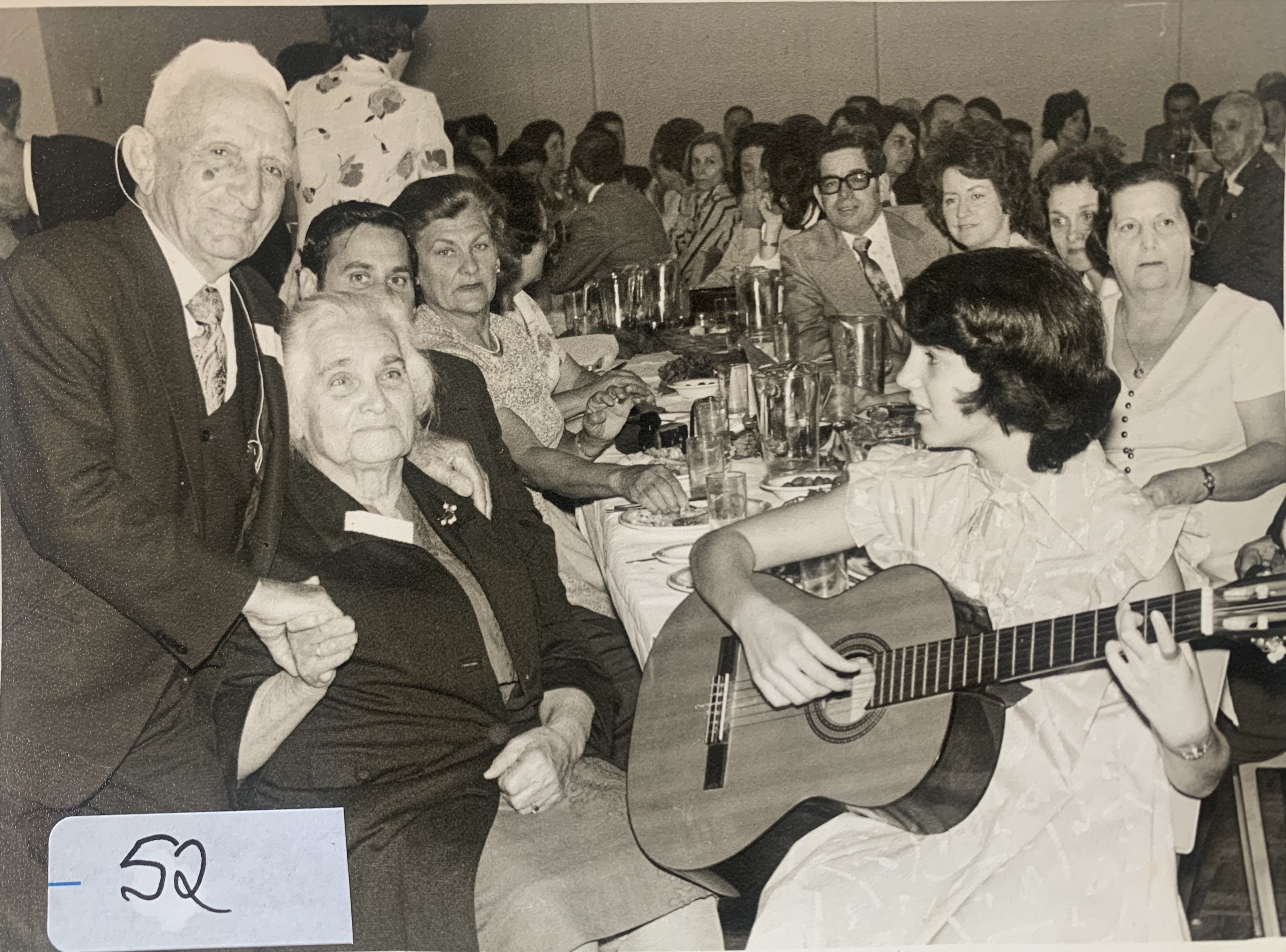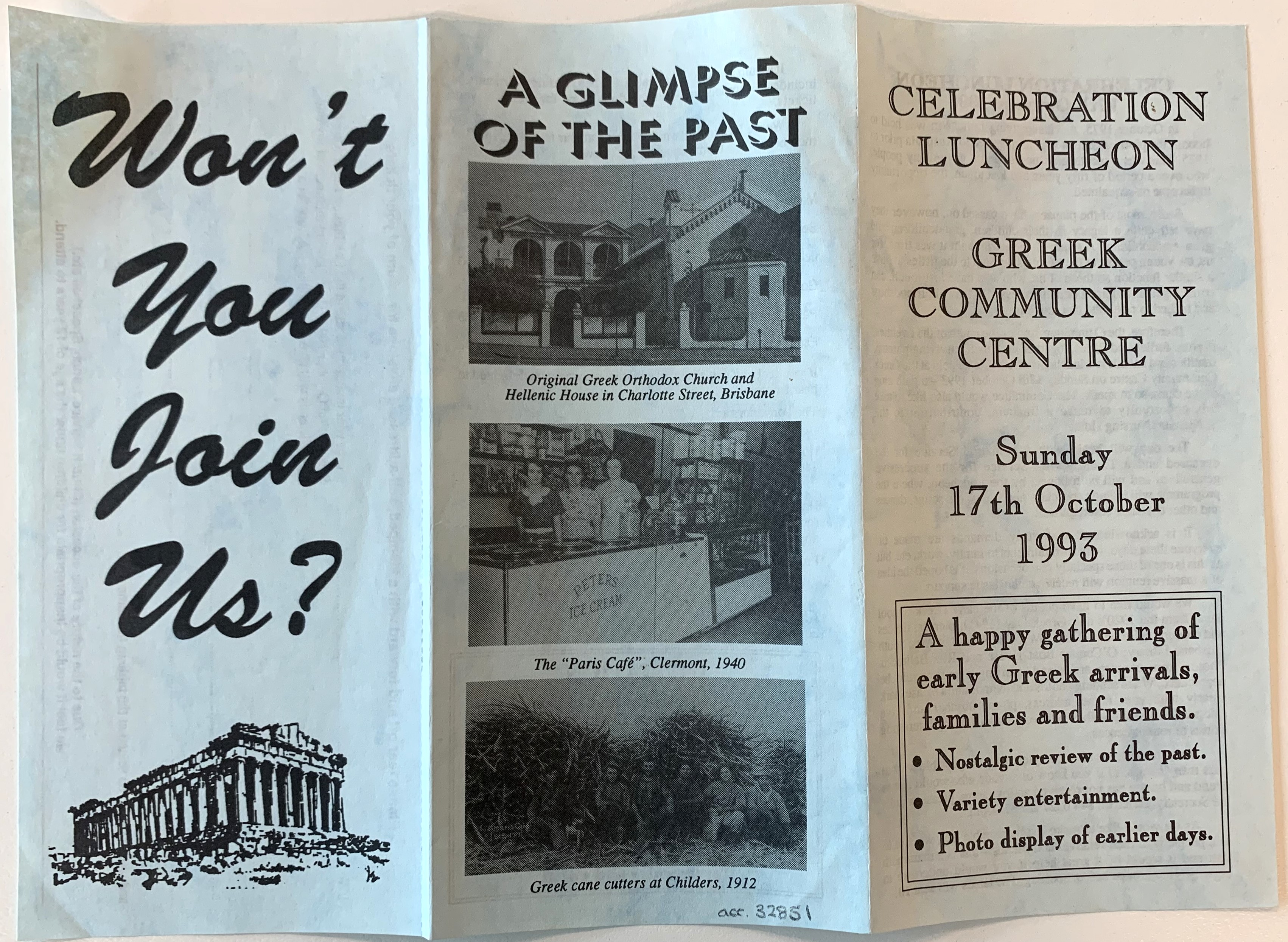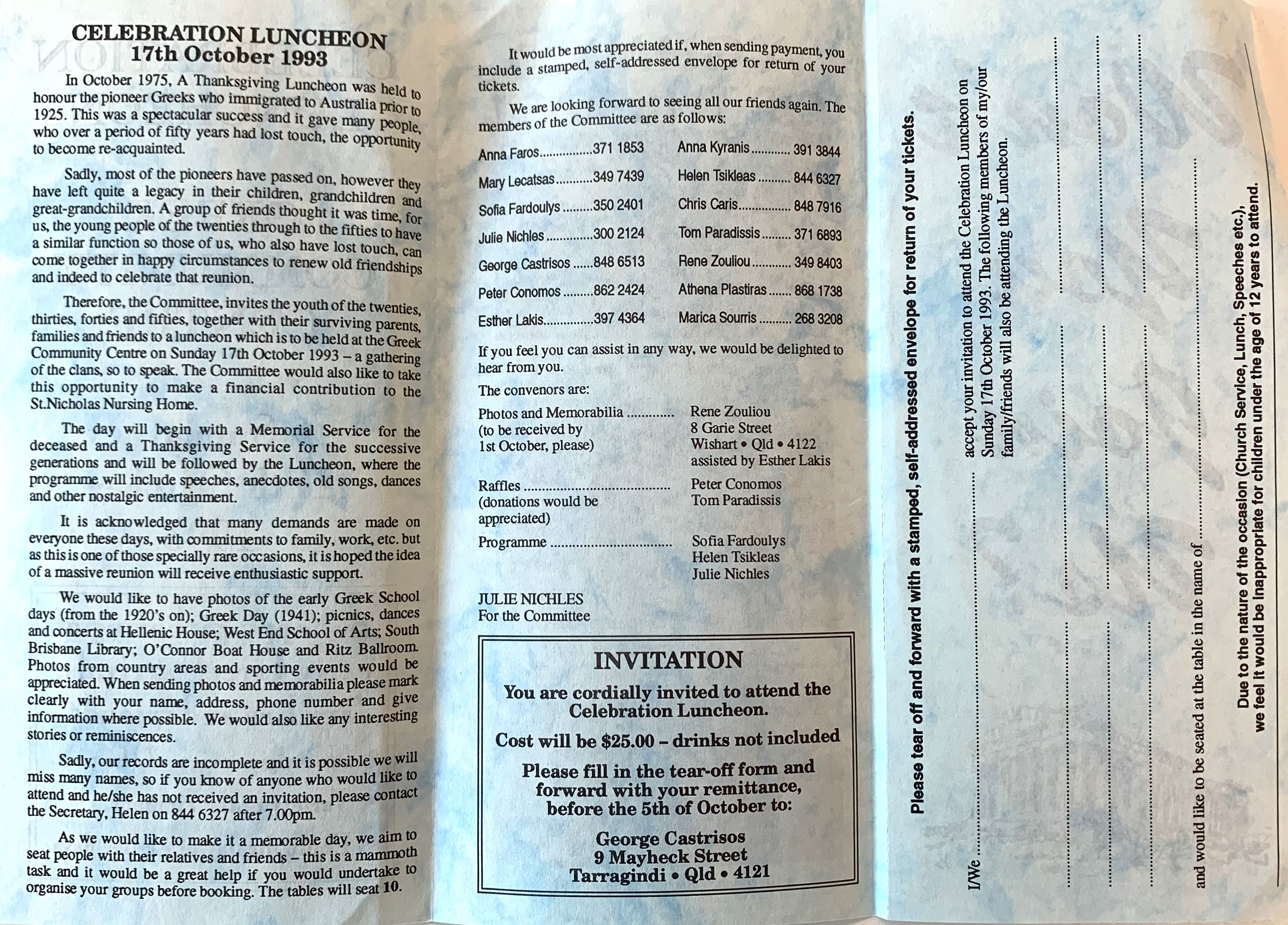Lens on Culture: Greek community in Brisbane with Julie Nichles (Nee Christofis)
By Wai Ling Leung | Program Assistant, Curation and Collection Engagement | 17 May 2024
When a letter from Julie Nichles (Nee Christofis), daughter of a longstanding Greek Community Archon (leader), begins with these words, you know you're in for a treat.
Over a number of years, I have been given and inherited various photos and other memorabilia, relating to the Greek Community that I was brought up in.
Julie Nichels holding the picture that made her famous within the community. SBS/Dina Gerolymou
My parents, Stratis and Evangelia Christofis, were my inspiration for this collection as they both were heavily involved in Greek Community life from the early thirties to the late fifties.
My father served the Greek Community, as President of the Greek Orthodox Community of St George for a number of years. He was President of the Building Committee of the second St George Church and he also was a member of the committee that built the first Greek School in Russell Street, South Brisbane. Stratis Christofis was the first Greek Australian to be honoured by the Greek Orthodox Church as Archon. Archbishop Ezekiel officiated.
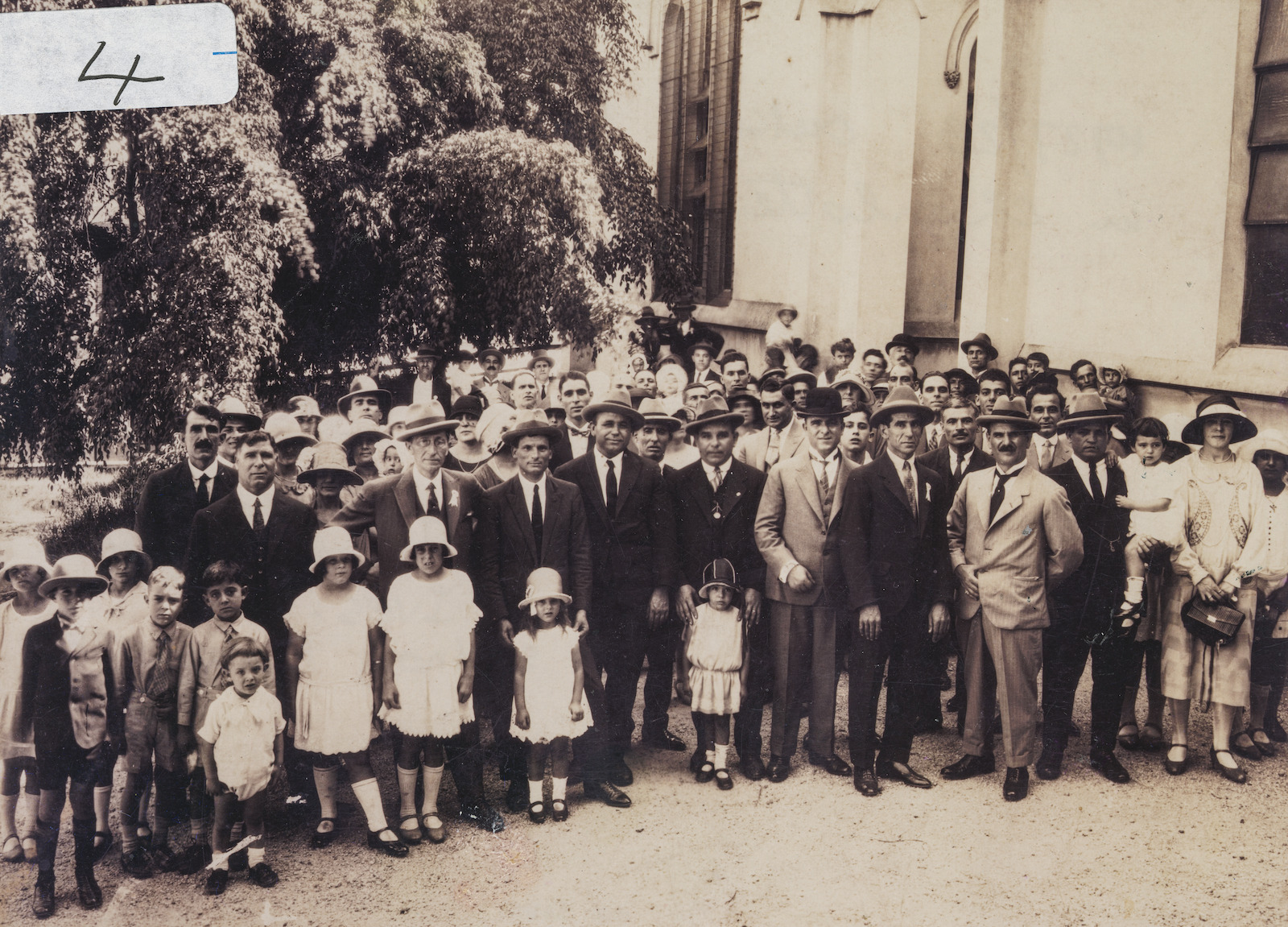
Group gathered at the first Greek Orthodox Church of St. George in South Brisbane around 1928
So much of the work to build the church and Greek school, involved fund-raising. Both my parents were leaders in these efforts, and those, during the World War II years, the Greek Red Cross, the Australian Patriotic Fund.
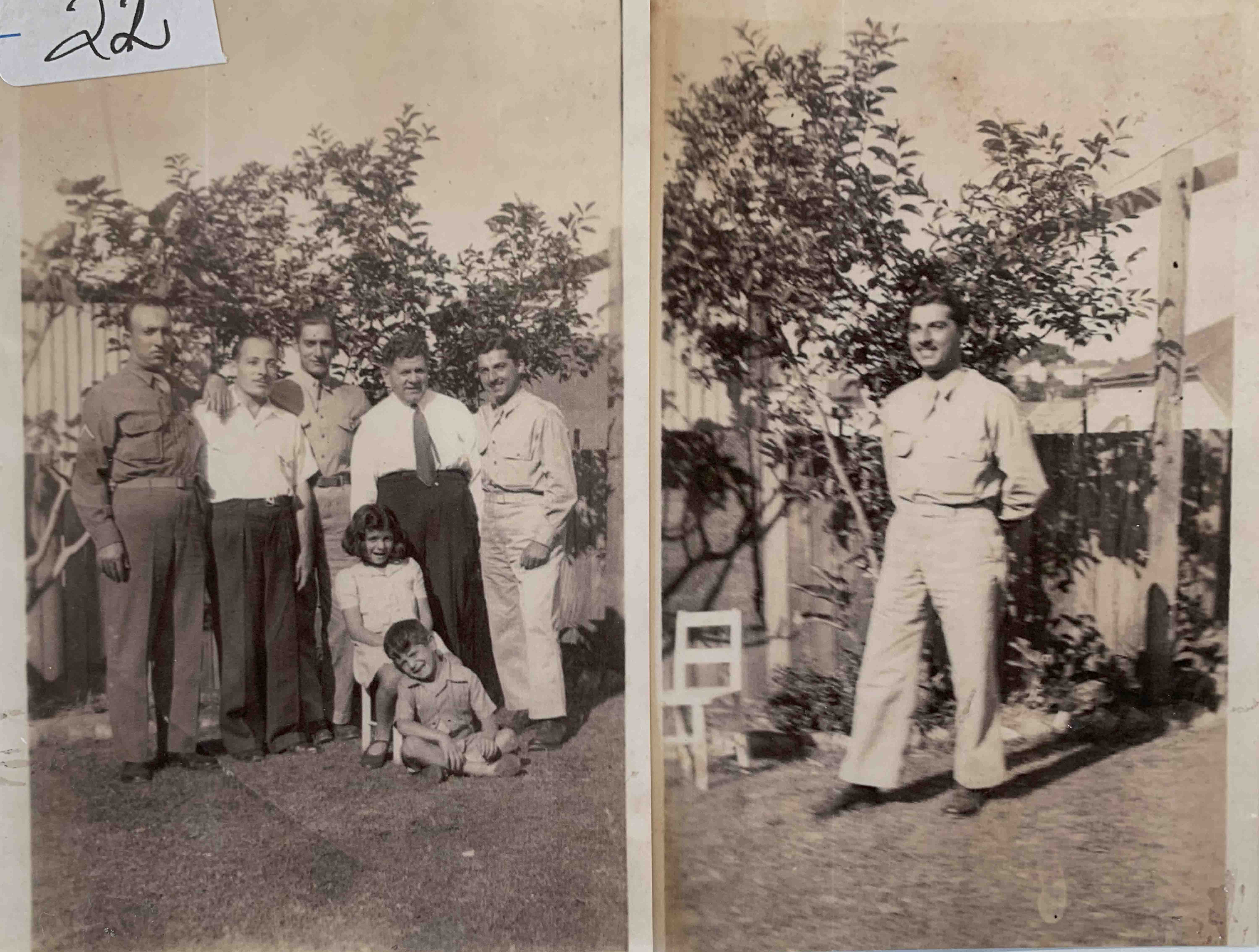
L: Christofis family with visiting American servicemen during the Second World War. R:Visiting US serviceman Harry Karavakis in the backyard of the Christofis family during World War Two.
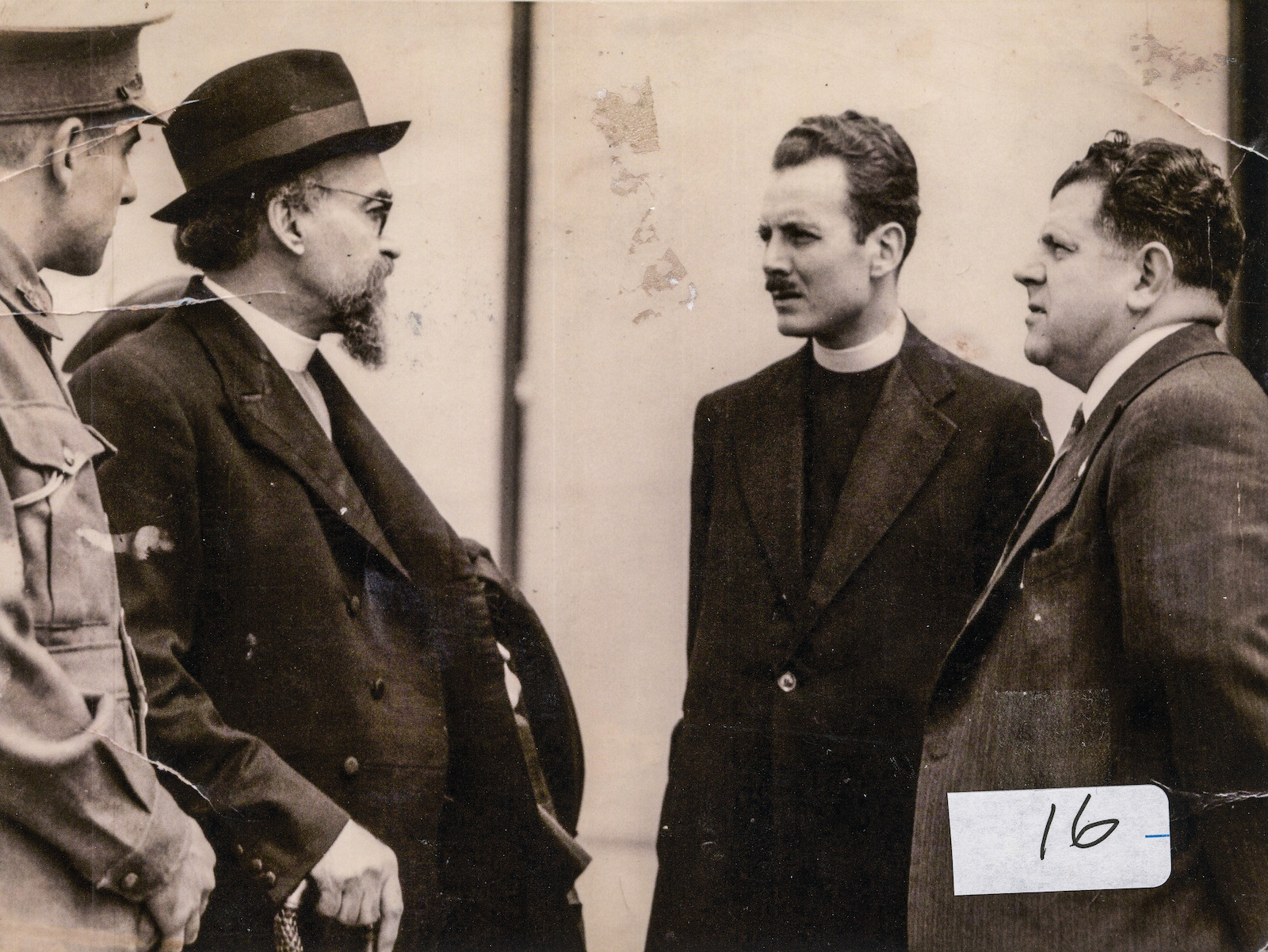
This photo was taken during the World War II years. From Left Kosma Freeleagus (Kos was a prisoner of war in Changi - unknown if this is before or after), Archbishop of Australasia Timotheos, Father Nicon Patrinacos (Parish Priest of St George) and President of the Greek Community of St George, Stratis Christofis.
One means of raising funds, either for the Church, the Greek Red Cross or the Australian Patriotic Fund, was to put on live theatre. My father produced plays which were performed either at the South Brisbane School of Arts, Princess Theatre or other venues. Rehearsals took place at our home in Vulture Street after working hours. My mother would be in the kitchen making coffee for the actors while Dad rehearsed them in our breakfast room.
My mother was a founding member of the first Ladies Auxiliary of the Greek Orthodox Church of St George and in later years she was a founding member of what is now the Philoptochos. My mother was the organiser of Greek Day, she was also involved in a war time concert held in the Brisbane City Hall. My mother organised dances at the Greek Club and O'Connor Boat house. Her love of "Patrida", like most expatriates, knew no boundaries. With her wealth of patriotic songs and poetry, she produced two huge Greek School concerts and every child that attended Greek School, had some part- big and small - in them. She was supported in this by many wonderful women who helped with music, sewing costumes, catering and many other ways. They included Mrs Aphrodite Inglis who taught the children all the religious hymns, Anetta Trovas, Mrs Starvrakas, Mrs Zoe Spinos and Mrs Angeliki Tonaki.
Evangelia Christofis received a Migrant Serice Award from the Queensland State Government in 1985.
Like most children of Greek migrants, I attended Greek School after normal school. We attended at least four of the five week days, and on Saturdays we had religious instruction classes. My classmates and I, being children, we often resented having to go to "Greeky".
As adults, though, we were grateful and appreciative that we could speak, read and write Greek. When visiting Greece, even though our accent would be noticed as different, we were usually complimented on our grasp of the language.
As for so many others, the Youth Club (Australian Hellenic Youth Association of Queensland), played an important part in my life. It provided the opportunity for an active, vibrant and fun social life in the Greek Community throughout my growing up years. Many years later, I was involved in two big functions held at the Greek Club. The first was in 1975.
A group of us wanted to "do something" for that generation of immigrants, some who'd arrived prior to 1900, who were now in their old and very old age: We decide to have a luncheon, preceded by a service in the Church. We called it the "Pioneer Luncheon".
The guests of honour were the original immigrants accompanied by their families. Close to 600 came to celebrate the history, resilience and contributions of Greek-Australians to the Queensland community. We sang old songs, danced, reminisced with each other around walls of photos, and reproduced some of the revues and parts of concerts we'd staged over the years in the life of the Youth Club. For both the guests, who in many instances, had not seen friends for many years, and for us the organisers, we were all richly rewarded for our efforts. It was a marvellous day filled with laughter and joy and many moving moments.
In 1993, a group of us (some from the 1975 Pioneer Luncheon committee decided to hold a similar function but this time to celebrate our generation (that is thouse who were born in Australia to Greek immigrant parents). We called this the Celebration Luncheon. This function also was successful attracting around 600 people from Newcastle, Sydney and Melbourne.
Visit us onsite or browse Julie's album online.
Whether you were born and raised in Queensland or simply a temporary resident of this land, the influence of the Greek community, is undeniable. Their contributions have enriched the multicultural fabric of Queensland, leaving an indelible mark on its history. Let's celebrate Paniyiri Greek Festival and its culture together!
Comments
Your email address will not be published.
We welcome relevant, respectful comments.
